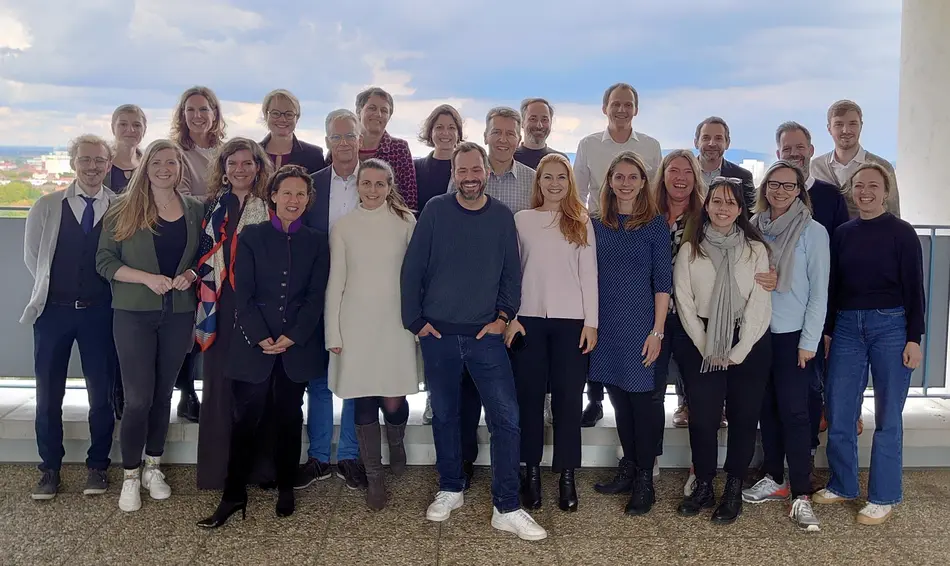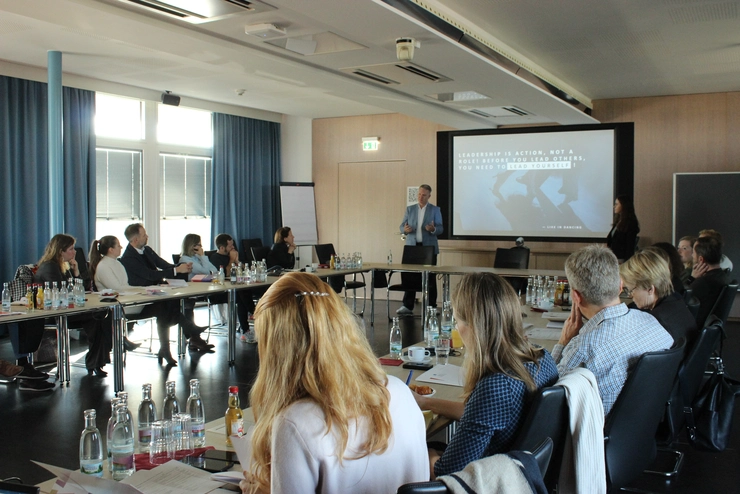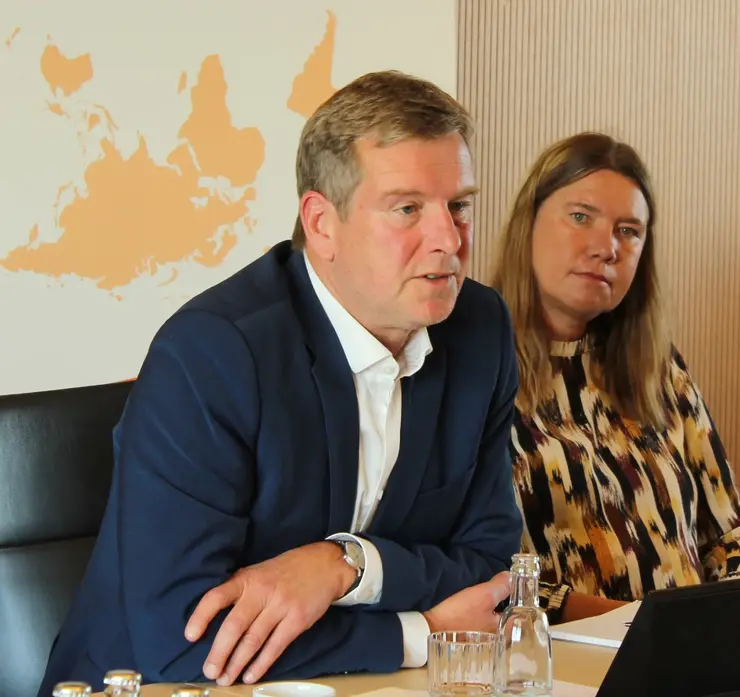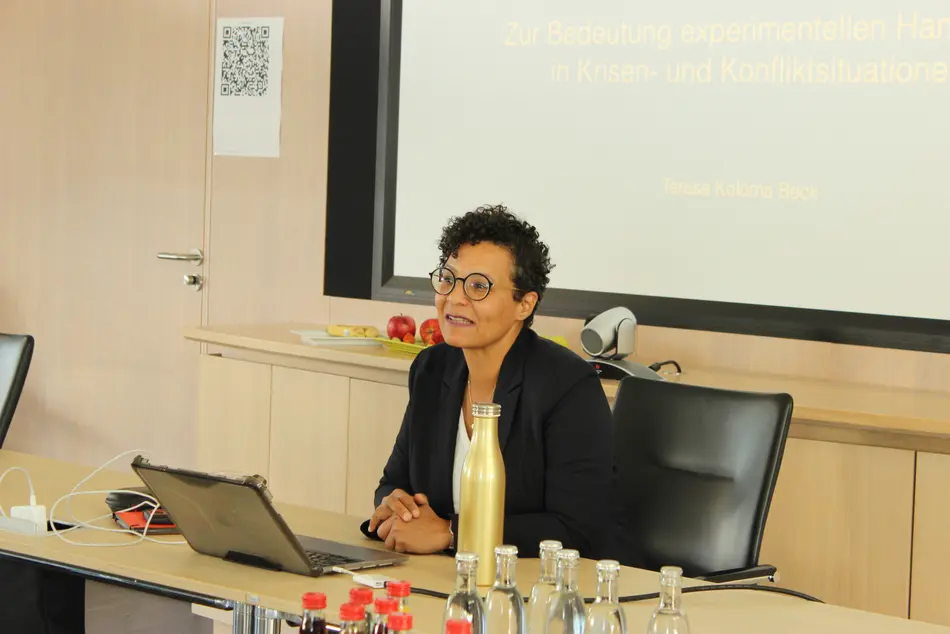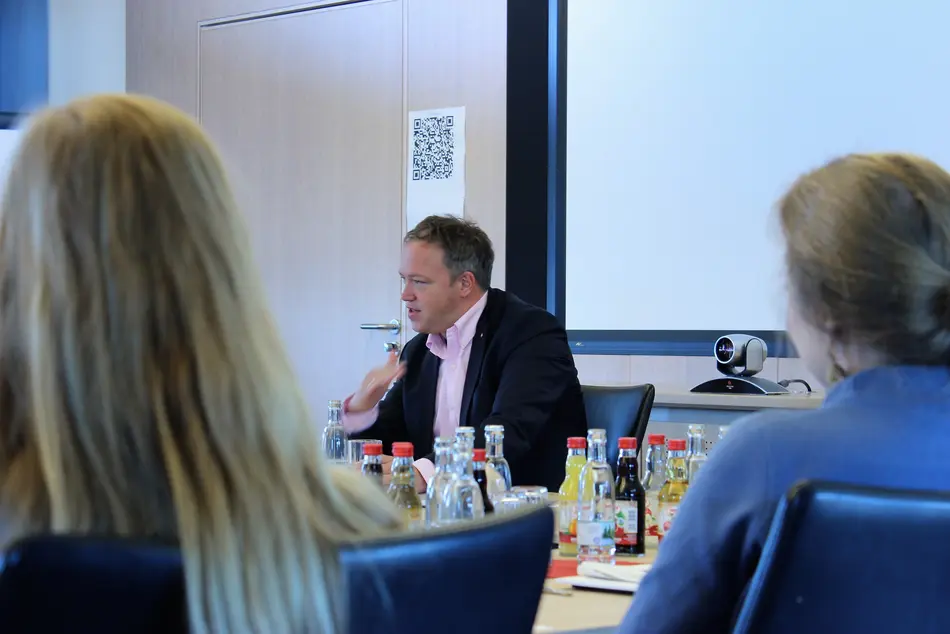Third Session of the Transformational Certificate: Leadership for the Future
Transformation is inevitable for a dynamic civil society, vibrant political culture, democratic norms and public policy. In the current sociopolitical environment, we face ever-unique and complex challenges such as an energy shortage, financial crisis, climate equity, food security, and refugee crises. Under the backdrop of societal transformation and leadership, the Willy Brandt School of Public Policy, along with the Intersectoral School of Governance Baden-Württemberg and the Hertie School of Governance, organized a six-day executive training for the “Transformation Certificate” in May, July and September 2022.
The Transformation Certificate brought together German mid-career and senior executives from the public and private sectors that strive to seek greater effectiveness and mastery as organizational leaders and want to actively design the future. The inaugural meeting for transformation certificate in May 2022 took place in Stuttgart and focused on the transformation process and politics of security and future mobility. The second meeting in July 2022, hosted by the Hertie School in Berlin, focused on the areas of sustainable approaches to economy and ecology as well as integration and migration in Germany.
The Transformational Certificate’s last part in September, which focussed on leadership, was hosted by the Aletta Haniel Professor for Public Policy and Entrepreneurship, Prof. Dr. Heike Grimm , at the University of Erfurt. Participants and trainers dealt with aspects of and tools for transformation such diversity, communication and media, public value, adaptive leadership, experimental action, and results based management.
Inputs came from academics such as Prof. Teresa Koloma-Beck and Prof. Timo Meynhardt, business coaches such as VW’s Falk Bothe and Elise Alexander of Harvard University, change management experts such as Markus Schlegel of Thüringer Aufbaubank, and communications trainer Robert Burdy. The session were furthermore by the two Senior Brandt School Fellows, Achim von Heynitz (former budget director at the World Bank) and Carmen Niethammer (Senior Gender Specialist at the European Investment Bank in Luxembourg).
While speaking to the audience, the State Secretary for the Thuringen Ministry of Economy, Science and Digital Society, Mr. Carsten Feller, cited Thuringia’s transformational journey of wind and solar energy, digitalisation within the universities as well as incentivising business activities through SMEs and attracting high-skilled workers from and outside Germany. A Thuringian perspective was furthermore shared by Mario Voigt, head of the CDU-opposition in Thuringia’s state parliament.
